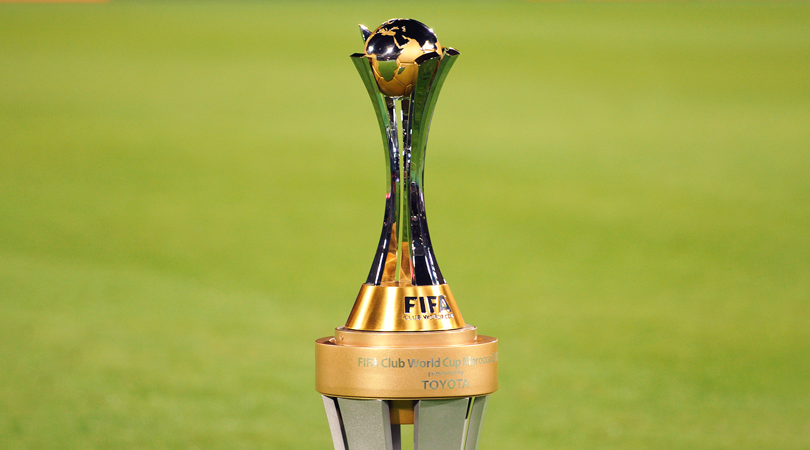- Get link
- X
- Other Apps
The FIFA Club World Cup: Showcasing the Best of Club Football
The FIFA Club World Cup is a prestigious international football tournament organized by FIFA, the governing body of world football. It brings together the champions from each of FIFA's continental confederations, along with the host nation's league winner, to compete for the title of the world's best club. The tournament provides a platform for clubs from different continents to showcase their talent, skills, and style of play, captivating football fans around the globe. In this article, we delve into the world of the FIFA Club World Cup, exploring its significance, format, historical moments, and impact on the footballing landscape.
Significance and Prestige:
The FIFA Club World Cup holds immense significance for both clubs and football fans. It represents the pinnacle of club football, where the champions from each confederation come together to determine the best club in the world. Winning the tournament is a prestigious honor and a testament to a club's success, providing international recognition and enhancing its reputation on the global stage.
Format:
The FIFA Club World Cup follows a knockout format, starting with a play-off round featuring the host nation's league winner and the champions from the Oceania Football Confederation. The winners then join the champions from the other five confederations (Africa, Asia, Europe, North and Central America, and the Caribbean, and South America) in the quarterfinals. The tournament progresses through semifinals, a third-place play-off, and ultimately culminates in the final, where the champions of Europe and South America traditionally clash.
Historical Moments:
The FIFA Club World Cup has witnessed numerous historical moments that have become etched in footballing folklore. From dramatic last-minute goals to underdog stories, these moments showcase the unpredictability and excitement of the tournament. Notable examples include Liverpool's memorable comeback against Flamengo in the 2019 final, Real Madrid's three consecutive titles from 2016 to 2018, and Corinthians' victory over Chelsea in 2012. These moments create lasting memories for both players and fans.
Competitive Balance:
The FIFA Club World Cup strives to promote competitive balance by featuring clubs from different continents. While European and South American clubs have traditionally dominated the tournament, there have been instances of surprising performances by clubs from other confederations. These upsets showcase the growing quality and competitiveness of club football globally, providing opportunities for clubs from lesser-known leagues to make their mark on the world stage.
Global Representation:
One of the most intriguing aspects of the FIFA Club World Cup is the opportunity for fans to witness clubs from different continents competing against each other. The tournament serves as a platform for cultural exchange, allowing fans to experience different playing styles, traditions, and fan cultures. It generates excitement and curiosity among football enthusiasts, fostering a global perspective and appreciation for the diversity within the footballing world.
Impact on Club and Player Development:
Participating in the FIFA Club World Cup can have a significant impact on the development of clubs and players. It offers exposure to different styles of play, tactical approaches, and varying levels of competition. The experience gained from competing against top clubs from around the world can help clubs and players grow, evolve, and improve. It also provides an opportunity for players to showcase their skills on a global stage, attracting the attention of international scouts and potentially leading to career opportunities.
Recognition of Lesser-Known Leagues:
For clubs from leagues with lesser international exposure, the FIFA Club World Cup offers a chance to gain recognition and respect. Representing their confederations and competing against more established clubs from Europe and South America allows them to showcase their quality and potential. A strong performance in the tournament can put lesser-known leagues and clubs on the map, leading to increased visibility, investment, and growth.
Host Nation's Role:
Hosting the FIFA Club World Cup provides an opportunity for the host nation to showcase its footballing culture, infrastructure, and hospitality. The tournament boosts the local economy through increased tourism, generates revenue through ticket sales and broadcasting rights, and creates a festive atmosphere within the host cities. The event also promotes tourism, cultural exchange, and international cooperation, leaving a lasting legacy for the host nation.
Promotion of Football Globally:
The FIFA Club World Cup contributes to the promotion and growth of football globally. It enhances the visibility and reach of club football, allowing fans from different continents to connect and engage in the shared passion for the game. The tournament serves as a bridge between confederations, fostering friendship, respect, and sportsmanship among players, fans, and officials from diverse backgrounds.
Conclusion:
The FIFA Club World Cup stands as a celebration of club football excellence, bringing together champions from different confederations to compete for the coveted title of the world's best club. With its rich history, thrilling matches, and global impact, the tournament captivates football enthusiasts worldwide. It represents the pinnacle of club football achievement, providing clubs and players with the opportunity to leave a lasting legacy and etch their names in the annals of the sport. As the tournament continues to evolve and grow, it will undoubtedly produce more iconic moments, create new heroes, and reinforce its status as a pinnacle event in the world of football.
- Get link
- X
- Other Apps

Comments
Post a Comment